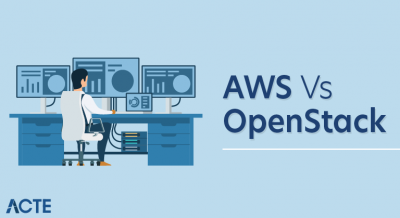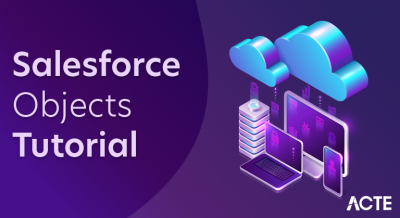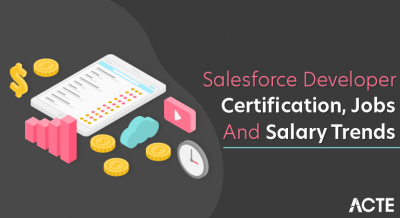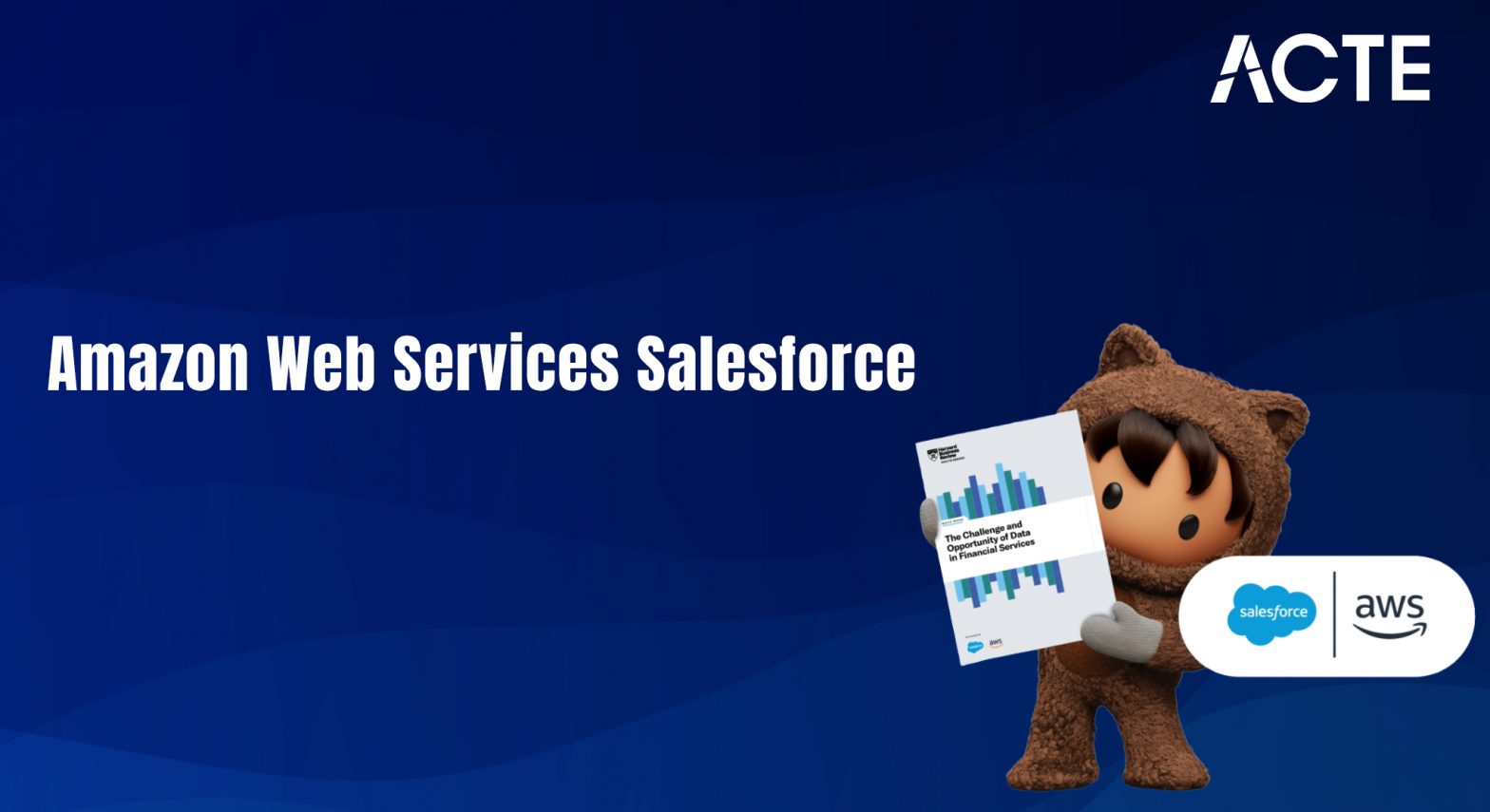
- Overview of AWS and Salesforce
- Amazon Web Services (AWS)
- Key Differences Between AWS and Salesforce
- Use Cases for AWS vs. Salesforce
- Pricing Models and Services Comparison
- Integration and Ecosystem Differences
- Scalability and Flexibility
- Conclusion
Overview of AWS and Salesforce
Amazon Web Services (AWS) and Salesforce are two of the most powerful cloud computing platforms, often integrated to provide enterprises with scalable, secure, and intelligent digital solutions. While Salesforce specializes in customer relationship management (CRM), offering tools for sales, service, marketing, and commerce, AWS delivers the underlying cloud infrastructure and services such as compute power, storage, AI, and analytics. Together, Salesforce Training platforms enable organizations to unify customer data, build and deploy custom applications, and scale operations globally. The integration between AWS and Salesforce enhances agility, accelerates innovation, and supports real-time data processing, helping businesses deliver more personalized and efficient customer experiences.
Amazon Web Services (AWS)
Amazon Web Services (AWS) is a comprehensive salesforce cloud computing platform offered by Amazon.Amazon Web Services Salesforce provides a suite of cloud services that include infrastructure as a service (IaaS), platform as a service (PaaS), and software as a salesforce service cloud(SaaS). Features of Salesforce Platform allows businesses to rent IT resources such as storage, computing power, and networking infrastructure on-demand, providing them with the flexibility to scale their operations without maintaining costly physical servers.AWS offers over 200 fully featured services, ranging from computing resources (Amazon EC2), storage solutions (Amazon S3), machine learning (Amazon SageMaker), database services (Amazon RDS), to developer tools, security, and analytics. The platform is trusted by startups, enterprises, and governments across various industries to power their digital transformation.
Become a Salesforce expert by enrolling in this Salesforce Training today.
Key Differences Between AWS and Salesforce
- The most significant difference between AWS and Salesforce lies in their core focus. AWS is primarily a cloud infrastructure provider, offering scalable cloud resources like computing, storage, and networking to businesses. It serves as the foundation for building and deploying applications in the salesforce cloud.
- Salesforce, in contrast, is a cloud-based CRM platform. Its primary focus is on managing customer relationships, improving sales processes, and driving customer engagement. While Salesforce also operates in the cloud, it is more about delivering software solutions to manage business operations and improve workflows, especially in sales, marketing, and customer service.
- AWS caters to a broad range of customers, including developers, IT professionals, and enterprises that need robust cloud infrastructure for various workloads. AWS is ideal for those looking to deploy web applications, store data, analyze big data, or use artificial intelligence (AI) and machine learning.
- Salesforce, however, is targeted toward business users, particularly in sales, marketing, customer service, and commerce. Become A Salesforce Developer provides tools for managing customer interactions, tracking sales, automating marketing processes, and delivering better customer service.
- Offerings AWS provides a wide variety of cloud infrastructure services, including computing power (EC2), data storage (S3), databases (RDS, DynamoDB), and machine learning tools (SageMaker). AWS gives customers the flexibility to build virtually any application or salesforce service salesforce cloud they need.
- Salesforce offers services like CRM platform, marketing automation, sales forecasting, customer support tools, analytics, and community management. It is highly focused on customer-facing operations rather than infrastructure management. Salesforce pricing integrates various modules such as Sales Cloud, Service Cloud, Marketing Cloud, and the Salesforce Platform, which are pre-configured for specific business functions.
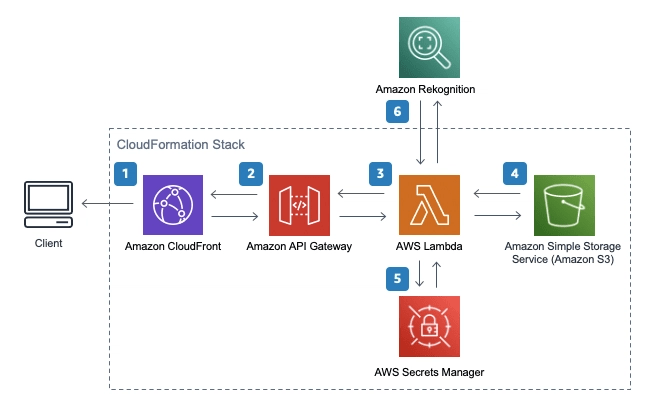
- AWS provides a high degree of flexibility and customization as it allows customers to manage virtually every aspect of their infrastructure and CRM software environments. Developers and IT teams have full control over the deployment and scaling of their applications.
- Salesforce is less flexible in terms of infrastructure but provides an extremely customizable environment within its software ecosystem. Through tools like Apex (Salesforce’s programming language) and Lightning, businesses can tailor Salesforce solutions to fit their exact business needs, especially around customer management, sales automation, and marketing workflows.
Use Cases for AWS vs. Salesforce
AWS Use Cases
Infrastructure as a Service (IaaS) AWS provides essential salesforce cloud infrastructure like computing, storage, and networking. Businesses use AWS to host their applications, scale quickly, and reduce physical hardware costs.Big Data Analytics AWS offers a comprehensive suite of analytics tools, such as Amazon Redshift and Amazon Athena, enabling organizations to The Future Hold for Salesforce and analyze big data. Web and Mobile Application Hosting AWS is widely used for deploying and hosting scalable web applications. Companies rely on AWS for high-performance hosting solutions that scale with demand.Machine Learning and AI AWS provides specialized machine learning tools such as Amazon SageMaker, which helps organizations build, train, and deploy machine learning models.Disaster Recovery Amazon Web Services Salesforce offers robust backup and disaster recovery services, allowing organizations to maintain business continuity during disruptions.
Advance your Salesforce career by joining this Salesforce Training now.
Salesforce Use Cases
Customer Relationship Management (CRM) Salesforce’s core use case is managing and optimizing customer relationships. Sales teams use Salesforce to track interactions, leads, and opportunities, ensuring better communication and faster conversions.Marketing Automation With salesforce pricing Marketing Cloud, businesses can automate marketing campaigns, send personalized emails, and analyze customer behaviors to improve marketing strategies.Customer Service and Support Salesforce Service Cloud provides companies with tools to manage customer support, Salesforce Training, and improve salesforce service cloud through AI-driven chatbots and automated workflows. E-Commerce Salesforce Commerce Cloud allows businesses to create and manage personalized shopping experiences, offering seamless integration with backend systems for product, pricing, and order management.
Pricing Models and Services Comparison
AWS Pricing Model
AWS follows a pay-as-you-go salesforce pricing model, meaning customers pay for what they use. AWS also provides a Salesforce Commerce Cloud for users with low-resource requirements to get started with cloud services at no cost for 12 months. Amazon Web Services Salesforce are billed based on the following parameters:
- Compute Usage: For example, EC2 instances are billed by the hour or second based on instance type and usage.
- Storage: Services like S3 charge based on storage volume and data transfer.
- Data Transfer: AWS charges for data egress (data transferred out of AWS to the internet or other regions).
- Subscription Services: AWS offers savings plans for long-term commitments (e.g., Reserved Instances).
- Sales Cloud: Starts at around $25 per user per month for basic CRM functionality.
- Service Cloud: Similar to Sales Cloud, with pricing starting around $75 per user per month.
- Marketing Cloud: More expensive and generally customized based on usage.
- Platform Licenses: Additional tools like Salesforce Platform and Einstein Analytics have separate salesforce pricing models.
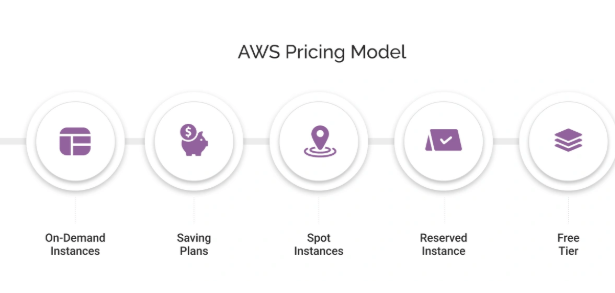
Salesforce Pricing Model
Salesforce offers subscription-based pricing that is tiered depending on the product and features needed. Salesforce pricing varies by product Cloud service, with pricing for Sales Cloud, Service Cloud, and Marketing Cloud being calculated based on the number of users and the specific features required.
Ready to excel in Salesforce? Enroll in ACTE’s Salesforce Master Program Training Course and begin your journey today!
Integration and Ecosystem Differences
AWS is an infrastructure and CRM platform provider, and its services are highly compatible with other cloud platforms, data lakes, and third-party applications. It integrates with popular CRM software such as Salesforce, Microsoft Azure, Google Cloud service, and other enterprise systems. Amazon Web Services Salesforce allows businesses to build customized environments using its APIs, SDKs, and native integrations with different tools.Salesforce CRM is primarily focused on integrating with other CRM systems and business Salesforce Sandbox Explained . Salesforce integrates easily with many enterprise CRM software tools, including marketing platforms (e.g., Mailchimp, Marketo), social tions like SAP and Oracle. Salesforce’s AppExchange is a marketplace that offers hundreds of pre-built integrations and apps for a wide variety of use cases. Salesforce also offers APIs and connectors to integrate with other systems, but its ecosystem is more tightly aligned around customer-facing processes. Salesforce offers MuleSoft as a powerful integration CRM platform for connecting various business applications and services.
Are you getting ready for your Salesforce interview? Check out our blog on Salesforce Interview Questions and Answers!
Scalability and Flexibility
AWS Scalability Media platforms, e-commerce solutions, and financial applica AWS is known for its incredible scalability. It enables companies to scale up or down as needed, making Salesforce Workbench ideal for businesses with fluctuating workloads. Through services like Auto Scaling, Elastic Load Balancing, and AWS Lamour Cbda, businesses can adjust resources dynamically without worrying about hardware constraints. AWS is highly flexible, offering full control over rese provisioning and management. Salesforce CRM also offers scalable solutions, but it is more focused on the front-end business functions rather than the back-end infrastructure. For example, businesses can scale their CRM, customer service, and marketing operations as they grow by adding more users and accessing higher-tier features. Salesforce’s cloud services are optimized for scaling customer relationship management tools, making it an excellent solution for companies of all sizes.
Conclusion
BothAmazon Web Services and Salesforce are powerful cloud platforms, but they serve different purposes. AWS is a comprehensive cloud infrastructure provider offering a wide array of tools for building, hosting, and managing applications. Salesforce Training provides the flexibility to manage all aspects of Cloud service infrastructure and development, making it ideal for businesses that require a high degree of customization and technical control.Salesforce, on the other hand, is a cloud-based CRM and enterprise platform that focuses on managing customer relationships, sales processes, and marketing activities. Salesforce provides specialized tools for optimizing business operations, particularly those related to customer engagement and service.While AWS excels at infrastructure management and scalability, Salesforce CRM is more focused on helping businesses optimize customer interactions and workflows.

